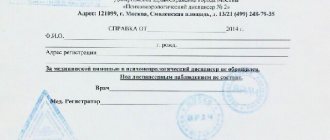State notary at your place of residence
In the process of registering rights to the inherited estate, the authorized person checks the following data:
- The fact of the death of the testator;
- Relations between the testator and the heir based on kinship or the provisions of the will;
- The existence of the testator's ownership rights to the property entrusted or transferred to the heir by law.
In this regard, the specialist must have contact details of organizations that record and maintain relevant information.
Within a small city that has one name of authorized bodies, it is quite easy to verify information. However, when it comes to big cities or a country, the work of finding and obtaining the necessary information becomes much more complicated.
In this regard, to simplify and speed up the procedure for registering inheritance rights, notary offices were distributed according to territorial basis.
To register the right to transfer the estate to its successor, you must contact the organization:
- At the place of opening of the inheritance - i.e. place of last registration of the deceased citizen.
- At the location of most of the inheritance. In this case we are talking about real estate objects.
Based on the data of the Legislation of the Russian Federation, as well as the Laws of the city of Moscow, the management of inheritance affairs in the city of Moscow is the responsibility of notaries of the city of Moscow.
Depending on the date of death of the testator, various methods are used to determine which of them should conduct the inheritance business:
- death occurred before May 5, 2005;
- his death occurred after May 05, 2005.
Until May 5, 2005, the practice in Moscow was to distribute notarial cases among notaries along the streets. After this date, the system of Centralized accounting of inheritance cases was introduced.
Thanks to this, it became possible to register an inheritance not from a specific one in the city, but from anyone located in Moscow. Information about the streets that were previously assigned to notaries can be found by contacting any of the telephone numbers of the Moscow Notary Chamber.
Let's celebrate! That when there are two or more heirs, the inheritance case will be conducted by the notary who was approached with an application to accept the inheritance for the first time. Therefore, the second one will need to submit an application to him.
In this case, you can contact a notary:
- private;
- state
Regardless of the chosen notary, the procedure for applying is the same; the principle of territoriality applies within the boundaries of the city of Moscow.
How to find the right notary office at your place of residence?
In order to determine which notary offices are located at the place of residence of both the heir and the testator, it is worth visiting the official information portal of the Moscow City Notary Chamber.
While on the site, you can get all the necessary information about the location of notary offices. To do this you need:
- go to the main page of the site;
- select the “Moscow Notaries” tab;
- while on the page you can see a map on which the addresses of notary offices are marked;
- For a more precise search, you can enter an address or specify a metro station, as well as independently enlarge the required section of the map.
Is it possible to register an inheritance not at the place of residence?
Due to the workload of some notarial counters, as well as the immense size of the country, the legislator introduced a state program that allowed a potential heir to contact any body that registers the transfer of rights to property, regardless of its territorial affiliation.
This program is called “Inheritance Without Borders.” Its purpose is to simplify the procedure and process of obtaining an inheritance.
However, this program is an experiment. At the moment, its implementation has been carried out in cities of federal significance - Moscow and St. Petersburg, as well as in their regions and some other large cities. Information about whether the city in which the potential heir lives participates in the program can be found by contacting the notary chamber in person or on its website on the Internet.
The implementation of the program was facilitated by the automation of recording and storage of information by authorized bodies, which allows the notary to obtain the necessary data from any corner of the country. Employees of the Chamber of Notaries will take into account its results and, based on the analysis of the results, the issue of expanding the program will be decided.
The procedure for accepting an inheritance
First of all, it is worth noting that the procedure for accepting an inheritance varies depending on the method:
- Acceptance of inheritance under a will. This method is used only if the person is indicated in the inheritance will. In this case, it does not matter whether he is related to the testator by family or any other relationship.
- Acceptance of inheritance by law. This method is common if a citizen passes away suddenly and does not have time to draw up a will. To accept the inheritance on the basis of law, the heir must be related to the testator and be in one of the inheritance lines. If there are several potential heirs, the right to receive the inheritance mass is determined by the court.
In order to legally formalize the right to the inheritance of a deceased relative, it is necessary:
- If the inheritance is accepted according to a will: Contact the notary office where the will was drawn up. As a general rule, a will is drawn up by a notary at the place of residence of the deceased. In this case, you don’t even have to look for it.
- Provide documents confirming the death of a relative.
- Submit documents confirming relationship.
- Submit documents confirming the right to the inheritance (a copy of the will, a second copy, etc.).
- Contact a notary office authorized to register the transfer of ownership of the property of a deceased citizen.
The territorial distribution of powers of government officials carrying out the registration of inheritance is a measure designed to speed up and simplify the process of obtaining the property benefits of a deceased relative.
Notaries are distributed on a territorial basis and perform actions in the following places:
- opening of inheritance;
- registration of inheritance.
However, due to the inconvenience caused by the length of the territory of the Russian Federation, as well as the workload of some notary offices, the state introduced a program that allows you to register an inheritance at the place of registration of the potential successor of the estate.
At the moment, several cities are participating in it, but the widespread implementation of the “Inheritance Without Borders” program is expected in the near future.
The legislative norms of the Civil Code of the Russian Federation provide for certain requirements when accepting an inheritance. The procedure and sequence of actions aimed at obtaining an inheritance are enshrined in the relevant norm of the Civil Code of the Russian Federation and are contained in Art. 1153.
To inherit according to law, the heir must write a statement to a notary. It is possible to submit such an application:
- personally;
- through a representative (lawyer, lawyer);
- sending it by mail.
To inherit under a will, the heir must:
- contact the notary office where the inheritance was opened;
- drawing up and submitting an appropriate application;
- actual actions in relation to inherited property;
- payment of state duties;
- receiving a completed document from a notary.
The state fee is:
- for heirs of the first and second priority - 0.3% of the market value of the inherited property;
- for others - 0.6%
Let's celebrate! However, parliamentarians provide restrictions on the amount of duty. For close relatives, the border aisle is 100 thousand rubles, and for other categories - 1 million rubles.
For this you will need the following documents:
- death certificate of the testator;
- certificate from the place of residence of the testator;
- a document allowing the identification of the heir;
- original will.
The law provides for the right of each heir to refuse inheritance. This right is enshrined in Art. 1157 Civil Code of the Russian Federation.
To do this, the heir must contact the notary office that opened the inheritance with a statement of refusal to accept the inheritance. The heir may carry out such a refusal either in favor of other persons or without specifying anyone.
It is worth noting that if you refuse to accept an inheritance once, the right to inheritance is lost forever.
Notary at registration address for registration of inheritance Moscow – Legal advice
To exercise their rights to the inheritance of a deceased relative , a potential heir must contact the authorized body - a notary office.
However, not all organizations operating in the field of inheritance law have the authority and ability to formalize the transfer of ownership of inheritance.
In the Russian Federation, there is a distribution of notary offices by territorial basis. In this regard, before contacting the authorized body, it is necessary to choose it wisely.
Dear reader! Our articles talk about typical ways to resolve legal issues, but each case is unique.
If you want to find out how to solve your particular problem, please use the online consultant form on the right or call.
It's fast and free!
The essence of the distribution of notaries in inheritance cases
In the process of registering rights to the inherited estate, the authorized person checks the following data:
- The fact of the death of the testator;
- Relations between the testator and the heir based on kinship or the provisions of the will;
- The existence of the testator's ownership rights to the property entrusted or transferred to the heir by law.
In this regard, the specialist must have contact details of organizations that record and maintain relevant information.
Within a small city that has one name of authorized bodies, it is quite easy to verify information.
However, when it comes to big cities or a country, the work of finding and obtaining the necessary information becomes much more complicated.
In this regard, to simplify and speed up the procedure for registering inheritance rights, notary offices were distributed according to territorial basis.
To register the right to transfer the estate to its successor, you must contact the organization:
- At the place of opening of the inheritance - i.e. place of last registration of the deceased citizen.
- At the location of most of the inheritance. In this case we are talking about real estate objects.
How to find a notary at your place of residence
- It is necessary to contact the city Notary Chamber, located in the city in which the deceased relative lived. If the last place of registration of the testator is unknown, you can contact any Notary Chamber. The organization’s employees will provide all the necessary information, including the address of the body authorized to register the applicant’s rights.
- If the testator’s city of residence is known, you can contact any notary. Based on the information at his disposal, he will be able to provide the address of the body authorized to register the applicant’s rights.
In large cities, additional detail may be introduced in the method of territorial distribution of notaries:
- According to the site, urban area in which the relative lived , or where the registered property is located.
- According to the first letter of the surname of a deceased relative on the site or in the area where the inheritance was opened or registered.
Step-by-step instruction
You can find out the address of a notary authorized to register the transfer of ownership of an inheritance in the following ways:
- By applying in person to the Notary Chamber of the city/region in whose territory the testator or heir resides. Since the information is for reference, providing documents confirming the death of a relative or the right to inheritance is not required. You only need to have a document proving the identity of the applicant.
- By contacting in person at any notary office in the city in whose territory the testator or heir resides. Since the information is for reference, providing documents confirming the death of a relative or the right to inheritance is not required. You only need to have a document proving the identity of the applicant.
- By visiting the website of the Notary Chamber of the Russian Federation. In the “Search for a notary” tab, based on data about the subject of the federation in which the deceased relative lived, you can find a person authorized to carry out the registration of inheritance.
What documents are required?
When registering an inheritance, recipients must not only write an application, but also prepare a package of documents. Providing the necessary papers is a necessary condition, since on their basis the notary will determine the rights of the applicants and the inheritance mass.
The documents that are necessary to open an inheritance case can be divided into several categories. The first and main one is the basis of inheritance and rights of successors. These include:
- Death certificate of the testator.
- Heir's passport and application for entry.
- An extract about the place of last registration of the deceased.
- Certificate of deregistration of the deceased.
A death certificate is issued by the civil registry office upon application from receivers or relatives. To obtain the document, you must provide an employee with a death certificate. It can be obtained in the hospital after doctors have established the fact of the death of a relative.
The second category of documents relates to inheritance law and determination of the inheritance mass. Receivers must prepare all the papers that are evidence of the testator's rights to his property. When inheriting an apartment, for example, you need to have a certificate of ownership (from 2020 an extract from the Unified State Register is issued), a purchase agreement, and a technical passport from the BTI.
Rights to inheritance are proven by two types of documents: a will or other documents indicating the degree of relationship between the applicant and the deceased. A will is drawn up during the citizen’s lifetime and must be kept by officials. Most often, you can find a document from a notary. If this paper is available, the circle of recipients will be determined based on the will of the deceased.
In the absence of a will, candidates for inheritance must provide evidence of their belonging to any circle of inheritance.
A notary can determine eligibility based on a birth or marriage certificate, a court order for guardianship or adoption. In some cases, the court may establish a family relationship with the deceased.
Notary office at your place of residence Moscow – About Heritage
17.11.2019
What you need to take into account in order to avoid difficulties when contacting a notary office in connection with the registration of legal inheritance rights to property in Moscow and other cities.
Not all citizens have an idea of where to go to formalize their legal rights to property and property rights of loved ones left after their death; they are at a loss as to what documents need to be prepared in such cases.
Only a notary has the right to initiate and conduct cases relating to inheritance, and you should hurry to visit the notary office at the place of residence of the deceased (be it Moscow or another locality), so that the deadline established by the legislator for accepting the inheritance is not missed due to ignorance or other independent circumstances. from you reasons.
On what basis are inheritance matters distributed?
Before you decide to register an inheritance, it will not hurt to figure out which particular notary office is authorized to directly handle your inheritance case. There is no procedure for distributing notary employees according to notarial actions; they all perform the same work. However, with regard to registration of inheritance rights, there are several nuances:
- territoriality - a notary accepts documents, opens and conducts an inheritance case at the place of residence of the deceased person;
- it is possible to distribute cases alphabetically, the initial letter of the surname of the deceased - the notary carries out activities in the area to which the surname of the testator is assigned;
- in the absence of registration of the place of residence, the case can be opened at the place where the main part of the property of the deceased citizen is located.
Dear readers! The articles contain solutions to common problems.
Our lawyers will help you find the answer to your personal question free of charge To solve your problem, call:
You can also get a free consultation online.
Important! The entire inheritance case (from filing the application to the issuance of the certificate) is handled by one notary, to whom the heir initially applied, public or private, it does not matter.
As for Moscow, there is a single database of all inheritance cases, and their centralized records are maintained.
https://www.youtube.com/watch?v=Zw8JvuM4A8I
To document your legal rights, you can contact any public or private notary, regardless of the place where the person lived on the day of death.
If there are several heirs, and the case has already been opened, the notary to whom they turn will send citizens to draw up documents at the notary office where the case has already been opened.
How to find the right notary office
The heirs must find out the address of the notary at the place of residence of the deceased and come to the notary's office to submit the appropriate application for acceptance (refusal) of the inheritance. The location address of the required notary can be found in two ways:
- apply for the information of interest to any practicing notary in your city, who will be able to find the necessary notary office by the address of residence of the deceased or by alphabet (the initial letter of the surname);
- address your question to the notary body (Chamber of Notaries), which oversees the activities of all notaries within the required territory.
In some large Russian cities (for example, in Moscow and the region), the “Inheritance Without Borders” program operates; residents of this region have the opportunity to use the services of not only a notary office at the place of residence of a deceased relative, but also any notary in Moscow.
This is very convenient for heirs, it saves them from wasting time searching for a specialist based on territorial criteria (there is no connection to a specific address) and significantly simplifies the process associated with entering into an inheritance.
This program is not yet valid throughout the country, only in certain regions.
Timely contacting a notary
The most common mistake of heirs is failure to comply with the deadlines for accepting an inheritance.
For some reason, most citizens naively believe that since the law provides for a period of 6 months for registering an inheritance, then you need to wait until six months have passed, and only then contact the notary office at your place of residence.
An erroneous opinion often leads to irreparable consequences: notaries refuse to accept documents because the deadline has been missed and people have to solve the problem in court. To avoid such unpleasant moments, you need to remember:
- six months are given by law so that all heirs have time to claim their rights to the inheritance or refuse it;
- exclusively in the case when the heirs accepted the inheritance by living together (registering) at the same address with the deceased, that is, in fact, they do not have to rush to visit a public or private notary at their place of residence.
Click on the image to watch the video: “Choosing a notary to register an inheritance”
The following actions regarding the property of the testator can also serve as confirmation of the actual acceptance of the inheritance:
- assuming maintenance costs;
- implementation of actions aimed at safety;
- entry into management and ownership;
- payment of existing debts of the testator.
Having found out the name of the notary and the address of his place of business using one of the above methods, go to the office within the prescribed period, taking with you the following documents:
- death certificate;
- a certificate (for the private sector, an extract from the house register) where the deceased was registered on the day of death;
- documents confirming family relationships;
- if there is a will - the original document with a notary’s mark that the will has not been changed or revoked;
- documents confirming the testator's right of ownership of the inherited property;
- heir's passport.
- Click on the image to watch the video: “How to choose a notary?”
This list is not exhaustive; any good notary at the reception will give you a complete package of documents to present to the office.
If for some reason you cannot personally appear before a notary at your place of residence, you have the right to authorize your representative to find out the address of the state notary where the inheritance will be formalized and provide the specialist with the necessary documents. An authorized person confirms his right to act on your behalf with a power of attorney, which must be notarized.
Attention! Due to ongoing changes in legislation, the legal information in this article or material may be out of date! Our lawyer can advise you free of charge - write your question in the form below:
Source:
Notary office at your place of residence Moscow - Legal assistance
To exercise their rights to the inheritance of a deceased relative , a potential heir must contact the authorized body - a notary office.
However, not all organizations operating in the field of inheritance law have the authority and ability to formalize the transfer of ownership of inheritance.
In the Russian Federation, there is a distribution of notary offices by territorial basis. In this regard, before contacting the authorized body, it is necessary to choose it wisely.
Dear reader! Our articles talk about typical ways to resolve legal issues, but each case is unique.
If you want to find out how to solve your particular problem, please use the online consultant form on the right or call.
It's fast and free!
Which notary should I contact to enter into an inheritance?
1
The most important point when registering the property of the deceased is the determination of the responsible specialist. Recipients of property must find a notary who will open the inheritance case.
However, the law strictly regulates the procedure for contacting notary offices regarding registration of property of deceased citizens.
Let's consider which notary you need to contact to enter into an inheritance.
Where to go to register an inheritance
After the death of the owner, his property is transferred to his heirs. Regardless of the basis of inheritance (law, will, testamentary disposition), potential recipients must take actions provided by law.
Actions of the heir after the death of the owner:
- find the right notary;
- apply;
- collect documents;
- pay the fee;
- obtain a certificate;
- re-register the property in your name.
Is it possible to register an inheritance with any notary?
The specialist authorized to open an inheritance case and issue documents certifying entry into an inheritance is a notary.
The law strictly regulates which notary you need to contact when registering an inheritance. Therefore, the possibility of contacting any notary office is not provided.
The specialist must perform the following actions:
- accept the application and documentation;
- open an inheritance case;
- wait for all recipients to apply within 6 months from the date of the citizen’s death;
- issue a certificate of inheritance rights.
The procedure does not differ when inheriting by order and by law.
Important! It is the certificate that is the document that confirms the transfer of property rights in relation to the property of the deceased to the recipients.
To distribute the load on notary offices, a special procedure for conducting inheritance cases is provided. The heir must contact a specialist who meets the following conditions:
- the last place of registration of the deceased is located on his property;
- the most expensive piece of real estate or other most valuable property of the deceased is located on an assigned plot;
- the first letter of the deceased's surname is assigned to it.
Notaries provide for the distribution of inheritance cases, depending on the first letter of the surname of the deceased citizen.
When inheriting by law, you must contact a notary for inheritance at the place of residence of the deceased. However, for this it is necessary to provide a certificate of the last place of registration of the deceased. Otherwise, the notary may refuse to accept the documents.
The procedure for appealing a notary’s refusal can be found in the article: “Appealing against a notary’s actions in court.”
How to determine which notary opened an inheritance case
If the deceased owner has several recipients, but they do not communicate with each other, then one of the heirs could have already contacted a notary to open an inheritance case. This situation is common in inheritance by law. Let's look at how to find a notary serving the place where the inheritance is opened.
Therefore, before contacting a notary office, it is advisable to find out whether there is an open inheritance case.
The law provides the following search options:
Application to the notary's office is carried out personally by the heir. The specialist will review the applicant’s documents and search for data through the unified register of notaries.
Applications to the notary chamber must be made in writing. To do this, a letter is drawn up containing an application, copies of the owner’s death certificate, a document establishing the basis of inheritance, and an inventory of the investment. The maximum period for providing a response is 30 days.
A new search option is the service of the Federal Notary Chamber. The heir will only need his full name. deceased, date of birth and death.
How to choose a notary to register an inheritance?
Options for choosing a notary
No. Situation Where to apply
| 1 | If there is a certificate of the citizen’s last place of residence | Notary who is assigned the territory at the place of residence |
| 2 | In the absence of a certificate, but in the presence of real estate | A specialist who is assigned to the territory on which the property is located |
| 3 | In the absence of real estate as part of the inheritance estate | Specialist in the location of the deceased's most valuable property |
| 4 | If the notary refuses to accept the application | By a court decision to establish the place of opening of the inheritance |
List of documentation for contacting a notary
When contacting a notary office, you must prepare a certain list of data. It is divided into:
- Details of the deceased owner.
- Documentation regarding the heir.
- Documents for inherited property.
The data of the deceased owner includes:
- death certificate;
- court decision declaring the owner dead;
- court decision establishing the fact of death;
- certificate of the deceased’s last place of residence;
- document on deregistration of the owner.
Documentation regarding the heir includes:
- recipient's civil passport;
- will (if any);
- data on family ties (in case of inheritance by law);
- birth certificate of a minor heir;
- civil passport of the legal representative of the minor recipient;
- a court decision declaring the recipient incompetent;
- civil passport of the guardian of the incapacitated recipient;
- information about the citizen being dependent on the deceased.
Documentation for the owner's property:
- legal;
- legal;
- cadastral;
- technical;
- assessment report.
Important! The main document is an application for acceptance of inheritance.
Sample application
Download the application for inheritance without a will
Payment procedure for notary services
The law provides for the need to pay for notary services when entering into an inheritance. Among them:
- state duty for a certificate of inheritance rights;
- fee for performing notarial acts;
- payment for technical services.
The state duty is calculated as follows:
- 0.3% of the valuation amount of the deceased’s property for recipients who belong to the 1st and 2nd stages of inheritance;
- 0.6% of the assessment amount for other recipients.
The fee for performing notarial acts is established by the Tax Code. Basic payments:
- when registering payment of the deceased’s funded pension – 100 rubles;
- when registering certain types of real estate – 5,000 rubles;
- when registering financial savings – 1,000 rubles.
Payments for technical services:
- opening a closed order – 300 rubles;
- certificate of written refusal – 500 rubles;
- proof of the recipient's signature on an application from another city - 100 rubles.
The amount of payments for technical and legal services may vary depending on the region of application. The maximum payment amount for a constituent entity of the Russian Federation is established by the Regional Notary Chamber.
You can check the cost of services on the website. However, a particular notary may set a lower cost for services.
Timely contacting a notary is the most important moment when registering the property of the deceased. Therefore, there is no need to waste time. If you don’t know where to start registering an inheritance, the lawyers on our site will always provide support. Leave a request in the feedback form and they will call you back at a convenient time.
- Due to constant changes in legislation, regulations and judicial practice, sometimes we do not have time to update the information on the site
- In 90% of cases, your legal problem is individual, so independent protection of rights and basic options for resolving the situation may often not be suitable and will only lead to a more complicated process!
Therefore, contact our lawyer for a FREE consultation right now and get rid of problems in the future!
Save the link or share with friends
Source: https://allo-urist.com/k-kakomu-notariusu-nuzhno-obratitsya-chtoby-vstupit-v-nasledstvo/
Registration of inheritance
As our long-term practice shows, all processes of determining heirs and their accession to the corresponding rights are often accompanied by serious disputes and conflicts. Therefore, when registering an inheritance, it is usually difficult to do without an inheritance lawyer.
The Institute of lawyers specializing in inheritance cases plays a significant role in this situation.
Competent consultations, as well as professional assistance from a qualified lawyer, are often perhaps the only ways to resolve inheritance issues between all interested parties. An inheritance lawyer will help you in any, even the most difficult cases:
- Inheritance of a house, apartment
- Inheritance of land plots
- Inheriting garage boxes
- Inheritance of cash deposits
- Recognition of property rights by inheritance in court, in case of failure to submit an application to a notary for acceptance of an inheritance, actual acceptance of an inheritance, or for other reasons in the event of a notary’s refusal to issue a certificate of inheritance.
To enter into an inheritance, you need to formalize it properly, for which you need to present to the notary a number of documents on the basis of which you have the right to inheritance.
Among these documents, it is necessary, first of all, to provide a death certificate of the owner of the property, documents for the real estate itself (confirming that it belonged to the deceased), as well as documents on the basis of which you have the right to inheritance.
In addition, you will also need technical documents: a cadastral passport, a certificate from the technical inventory authorities (BTI) about the value of the inherited property.
Having confirmed your right to inheritance, you can proceed directly to registration of inheritance. There are two ways to inherit property in the Russian Federation: relying on the law or according to a will drawn up by the former owner or owner of the apartment.
If there is no will, then the property is inherited according to the civil code, which groups heirs into several lines, according to the degree of proximity of relationship.
The next line of relatives inherits only if there are no heirs of the previous line, or if they refused to accept the inheritance.
The right to inheritance under a will can only be confirmed by the will itself, drawn up by the former owner of the property. The process of entering into the right of inheritance is exactly the same as under the law, the only difference is that you can become an heir out of line of kinship, and also without even being a relative of the deceased.
A will can be closed or open. A closed will is when the testator writes a will in the presence of a notary, and then seals it in an envelope and signs it (thereby certifying the envelope with the will). An open will is when all heirs are familiar with the will in advance.
In any case, every change in the will must be certified by a notary every time.
Let's say you have already gone through the previous stages and accepted an inheritance, for example an apartment. However, if you do not need it for living, or for some other reason you want to sell the inherited apartment, then this can be done, but only after going through the procedure of accepting the inheritance received.
All documents necessary for this must be provided no later than six months after the death of the testator. If the heirs were unable to do this for various reasons, that is, to carry out this procedure within the period allotted by law, then they will have to prove their inheritance in court.
You will need to prove to the court that you really, for good reason, were unable to formalize the inheritance within the period prescribed by law.
What to do if the deadline for accepting an inheritance has been missed?
In cases where you apply for acceptance of the inheritance later than 6 months, the notary will refuse to formalize the inheritance. Such a missed inheritance period will have to be restored in court. The reasons for reinstating the deadline will be the following:
- the heir did not know and could not know about the opening of the inheritance
- for good reasons could not register the inheritance
- went to court within the next six months after the reasons for missing the inheritance period disappeared
Shared inheritance
It also happens that there are several heirs, but everyone inherits only one apartment. In this case, all heirs have the right of ownership; these are the so-called “shares”. Only after determining their share will each heir be able to fully dispose of it.
But what if, for example, there is a one-room apartment, and there are two shareholders? In this case, the easiest way for each heir is to sell his share, because legally it can be sold to anyone.
However, before the sale, according to the law, the heir is first of all obliged to offer to buy this share to another heir.
The legislation also provides for the actual acceptance of inheritance. If the heir of a home lives in the house of a deceased relative, pays utility bills, maintains and repairs it, then he has actually already entered into an inheritance.
However, in this case, documents for the property will still have to be drawn up: for this, an application is submitted to the court to establish the legal fact of acceptance of the inheritance.
And then, on the basis of a court decision recognizing the fact of inheritance and recognizing the right of ownership, it will be possible to register the right of ownership.
If you have any difficulties in accepting a legal inheritance, you have missed the deadline for accepting an inheritance, you are having difficulties registering an inheritance, or you are unfamiliar with the nuances of this procedure - you can contact our lawyers, we have accumulated vast experience in such matters. Even in difficult cases, for example, in recognizing the right to inherit property through the court, we will help you collect the necessary documents and win the court case.
Source: https://BalAdvokat.ru/oformlenie-nasledstva/
Notary at your place of residence: how to find and who to contact
Notaries perform all procedures in accordance with current legislation. They are not divided by areas and types of activity.
Inheritance matters must be handled by a notary who operates at the specific place of residence of the deceased donor. At the same time, the notary office operates in the area to which the initial letter of the testator's surname belongs. In some districts and regions, the rules for assigning notaries are based on the way they conduct business.
It is also important when a notary office operates on a site that includes the address of the largest piece of property in terms of volume or value that is subject to inheritance.
Acceptance of inheritance by law
Heirs do not always know how and where to find the notary assigned to the address.
But his address or the location of the notary’s office can be found out in two ways.
- Each notary office will tell you the right notary by the name of the testator or his address.
- Appeal to the Notary Chamber of the city or other locality in which the testator was registered. This government agency has complete information about all notaries available and providing such services and will be able to direct you to the notary office that deals with such issues at a specific address.
This is a rather ambiguous question. On the one hand, registration of inheritance, according to the law, must take place with a specific notary attached to a specific address.
That is, the inheritance case is opened at the address of the last registration of the testator and at the same time, depending on the procedure for entering into the inheritance, the heir will be required to provide the notary with a certain list of documents, and when entering under a will, also find the notary who compiled it and put the appropriate mark on its validity and lack of changes.
In some regions and cities of Russia, the “Inheritance Without Borders” program has been introduced.
We invite you to familiarize yourself with: Power of attorney for managing a private entrepreneur
This program allows for the registration of inheritance rights in any notary office, which may be located not at the place of residence of the deceased, but in any other location in the city or region, related to a different address and not tied to a specific address.
This program is an experiment, the main advantage of which is the ability for citizens to apply to any notary to accept inheritance rights. It simplifies the search, or rather eliminates it altogether.
And the heir has the right to choose an office or notary to register the inheritance himself. Managing an inheritance under such a program is only possible if it is opened after the start of the “Inheritance Without Borders” program.
Otherwise, the inheritance case must be conducted by a notary office that serves the last place of residence of the testator. Such a system operates on the basis of a unified electronic database and accounting system for all inheritance cases.
But it does not apply throughout the country. Therefore, depending on the region or city of registration of the deceased testator, it depends on which notary you should contact to document your rights.
According to the law, the place of opening of an inheritance case is made at the last permanent place of residence or registration of the deceased. And, therefore, only the notary who is assigned the address of the testator’s last residence, that is, a specific street and house, has the right to deal with such an issue.
When opening an inheritance case, the heir is obliged to document the fact of the death of the testator, as well as provide documents confirming his last place of residence at the address that belongs to this notary.
The documents certifying and confirming the fact of residence of the deceased at the address served by this notary office are:
- a standard document issued at the passport office confirming the presence of registration at the specified address at the time of death;
- extract from the house register.
In some cases, a notary office or notary may send a request to the passport office to confirm the necessary facts.
If it is not possible to establish the last place of registration, then it is necessary to open an inheritance case at the location of the inheritance itself. There are cases when the fact of opening an inheritance at a specific address is established in court.
In this case, the court will take into account the following information to make a decision:
- about the duration of residence of the testator in a particular place;
- availability of supporting documents of residence at a specific address or in a specific area.
Use different options for searching for notary offices in Moscow - by district, area, street, nearest metro station and others. Choose the option that is convenient for you.
When choosing a notary, be guided by the convenience of the office’s location and working hours, reviews of the notary’s professional activities, competence in the preparation and execution of documents, and politeness when working with clients.
What documents are needed
The necessary documents for registering an inheritance with a notary depend mainly on the type of property received. However, there are also general requirements in relation to the information submitted to the notary.
In any case, the notary must submit:
- Application for inheritance.
- A copy of the death certificate of the testator.
- Identity document of the heir(s).
If we are talking about inheritance by law, all available evidence of family ties between the testator and applicants for his property is provided.
This includes birth or marriage certificates. When kinship has been established in court, an appropriate decision will be required.
Care should be taken to evaluate the property being inherited. Based on the value determined by the appraiser, the state duty for issuing a certificate of inheritance will be determined. Now let's move on to the composition of documents in the context of specific types of property.
Real estate: apartment, house, land
First of all, you will need all the documents for the relevant object. They mean a certificate of registration of property, an extract from the register of rights, and a privatization agreement.
In addition, the notary will need:
- Technical and cadastral passports.
- Layout of the land plot.
- Evidence of the allocation of a part in real estate (if a share is inherited).
- Information from the house register.
- An extract from Rosreestr confirming that the apartment (house, land) is not burdened with encumbrances.
Depending on the region, the notary may ask the heirs to provide additional information and certificates.
Vehicles: car, motorcycle, trailer
The object of inheritance can only be those cars or motorcycles that belonged to the testator by right of ownership. If a person owned a vehicle on the basis of a power of attorney or a lease agreement, then such property is not inherited.
So, what do heirs need to re-register rights to vehicles?
List of documents:
- Certificate of registration of the vehicle (motorcycle, trailer).
- Passport for the vehicle (PTS, registration certificate).
- An expert's report on the value of the inheritance object at the current time.
Actually, nothing else is required for a notary. Therefore, there should be no problems with taking over your rights.
Bank deposits
Not only valuables and real estate are inherited, but also the funds that the deceased had during his lifetime.
When it comes to a bank deposit, the notary will need:
- Deposit account agreement and savings book (if available).
- A certificate from the bank about the balance of the deposit (it can be obtained based on a personal request from a notary).
Part of the money can be received from a bank deposit before the completion of the inheritance to compensate for the costs of the funeral of a deceased relative. In this case, the notary will prepare a corresponding decree for presentation to the bank.
Share in business: LLC, shares
When the testator was involved in entrepreneurship during his lifetime, his corporate rights also go to the heirs.
To receive them, the notary must provide:
- Extract from the Unified Register of Legal Entities.
- A copy of the company's charter.
- A certificate confirming full payment of shares or share in the authorized capital.
- Information from the register of shareholders.
- Valuation based on the current value of shares or part of the authorized capital.
The notary has the right to ask for additional information depending on the specifics of the activities of the company in which the share is inherited.









